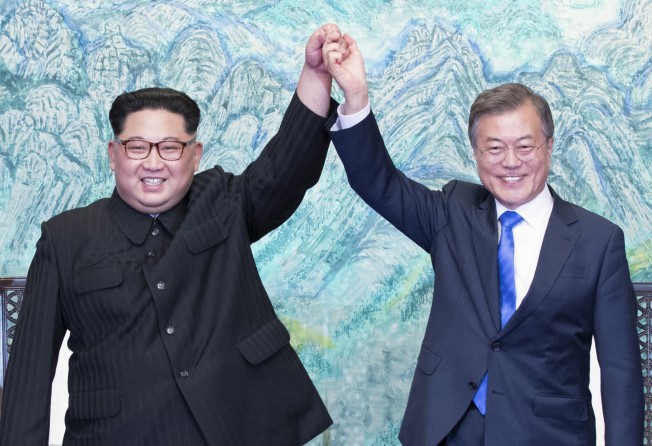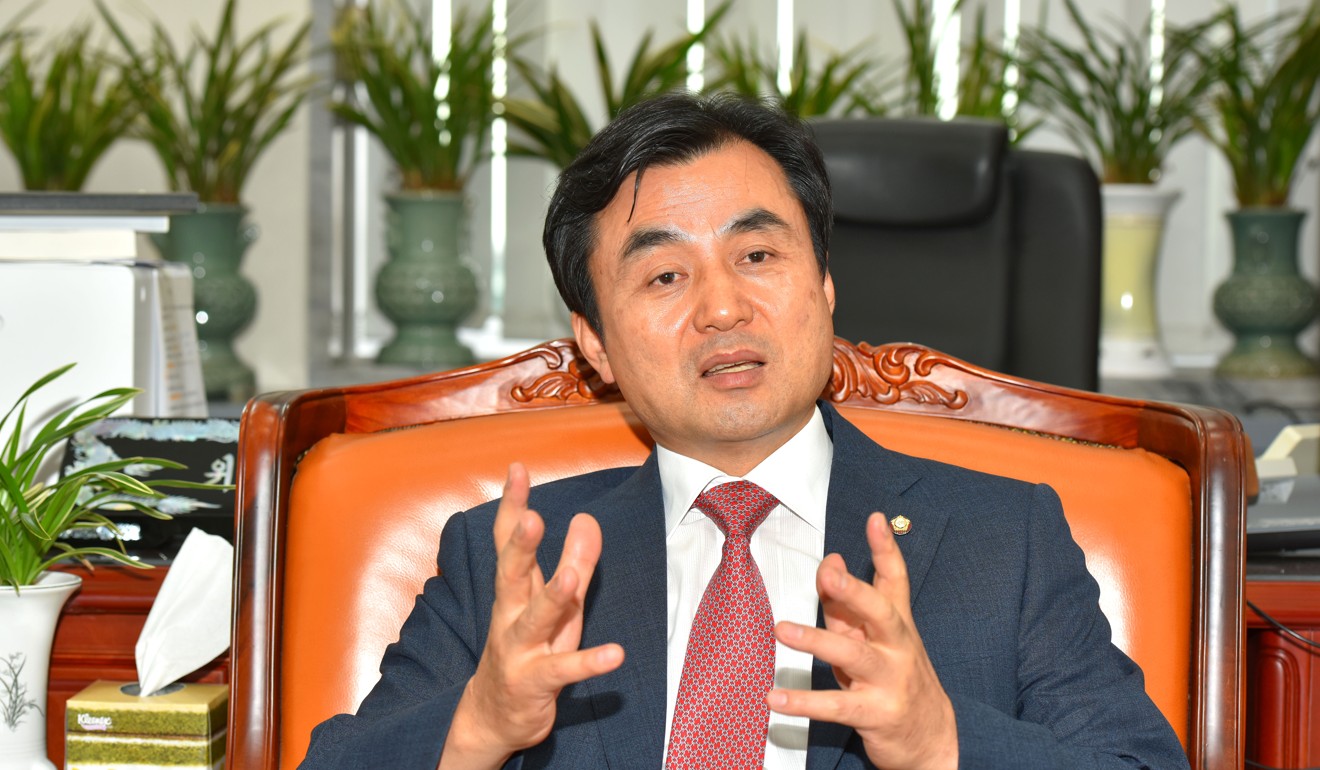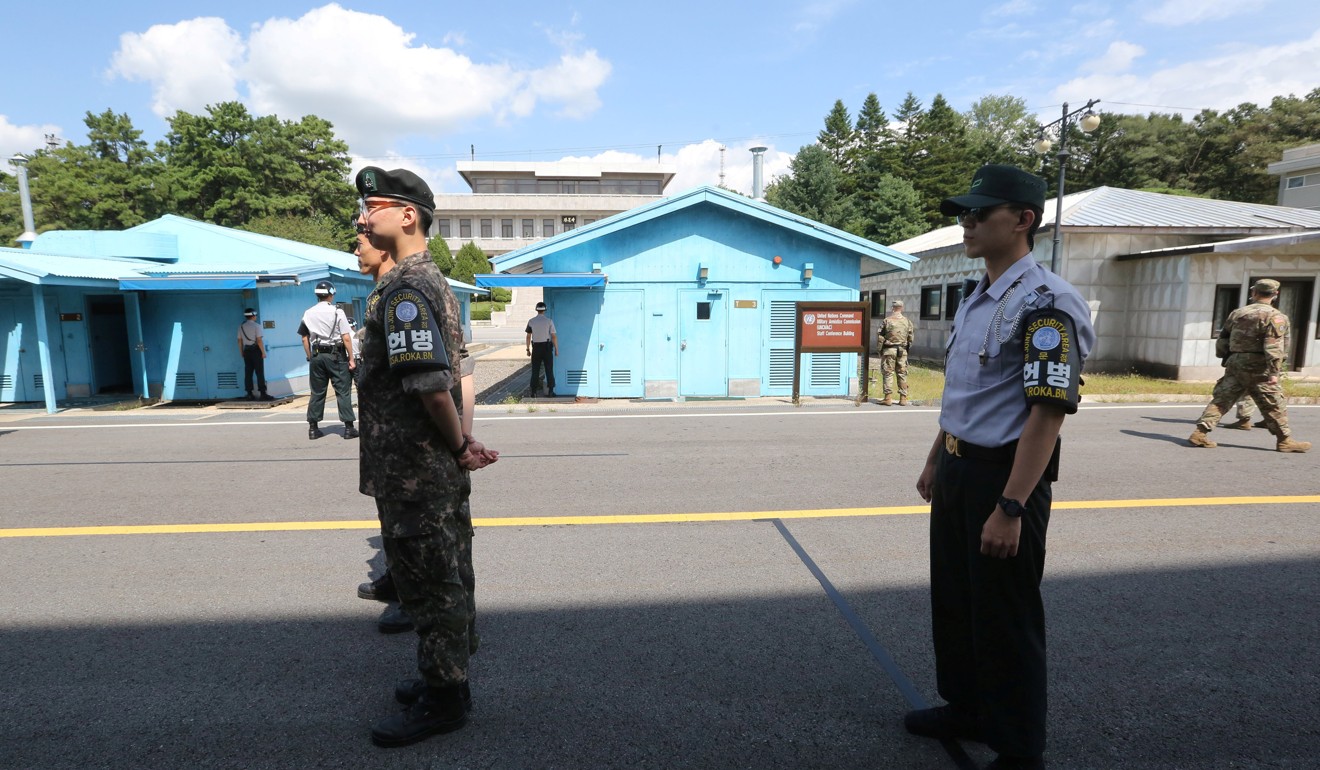Moon-Kim summit ‘perfect timing’ to bring end to cold war on Korean peninsula, says leading politician from South
Ahn Gyu-baek, chairman of the parliamentary national defence committee, says peace treaty and denuclearisation must go hand in hand

The cold war mentality that has endured on the Korean peninsula over the last seven decades must come to an end through an official declaration of the end of the Korean war, a senior member of the South’s parliament said ahead of a landmark summit in Pyongyang next week.
Ahn Gyu-baek, chairman of the national defence committee of the South Korean National Assembly, said the next steps must be the simultaneous signing of a peace treaty and North Korea’s denuclearisation.
He said he expected a significant outcome from South Korean President Moon Jae-in’s three-day visit to Pyongyang to meet his North Korean counterpart Kim Jong-un, which starts on Tuesday.
“There have been many concrete conversations about declaring the end of the war at the formal and informal working talks [with the North Koreans] to elevate our level of trust and reaffirm our dedication on working towards denuclearisation,” Ahn told the South China Morning Post.
He suggested Moon and Kim might announce a significant deal regarding the two Koreas’ armed forces at the upcoming summit.
Over the last few weeks, the two sides have been discussing ways to reduce military tension on the peninsula, including plans to scale back the number of guard posts and amount of military equipment along the heavily fortified border.
“This is the perfect timing for ending the cold war on the peninsula and accepting [North Korea] as a companion … The upcoming inter-Korean summit will lay the groundwork for declaring the end of the war,” Ahn said, noting that the declaration is likely to be made by the end of this year.
The Korean war ended in 1953 after an armistice was signed – by China, the United Nations Command and North Korea – but no formal peace agreement was made.
“If each player works hard to establish mutual trust among one another, the declaration will be possible,” Ahn said.
“When President Moon goes to the North Korean capital as a mediator between the North and the United States, the gridlock on the denuclearisation talks between US-North Korea will be somewhat eased.”

Ahn, a member of the ruling Democratic Party, also stressed that the next step after the declaration of the end of the war would be a simultaneous peace treaty and denuclearisation.
“Denuclearisation and a peace treaty must go hand in hand. They can’t be separated,” he stressed, noting that mutual trust between each party must be built through reciprocal measures.
Pyongyang favours “phased and synchronised measures” to ensure it receives compensation from the international community as it gives up its nuclear weapons, rather than after it has finally done so.
Ahn noted that Seoul aimed to achieve denuclearisation by the middle of the next decade, although he expected myriad obstacles along the way.
While the various parties have different definitions as to what denuclearisation would entail, Seoul hopes for the irreversible dismantlement of North Korea’s nuclear arsenal, while maintaining the US military presence in the South.
The senior congressman also acknowledged the importance of China during the denuclearisation process, saying Beijing’s cooperation was a “must” to push the North towards giving up nuclear weapons.
“China is a ‘key man’ on North Korean issues, China must contribute to the permanent settlement of peace on the Korean peninsula.”
Ahn also noted Chinese participation in the declaration of the end of the war would help ensure a more stable political settlement. However, he said China was not likely to – and should not – demand the end to the US military presence in the South.
He said South Korea and the US had an “alliance of values that goes beyond than a simple military alliance”.

The congressman also dismissed the possibility of an immediate withdrawal of the US missile defence system known as Terminal High Altitude Area Defence (THAAD) from the South after a deal was reached.
“The THAAD issue is ultimately something that the United States should decide, not South Korea.”
Ahn said US-South Korean joint drills might resume if the denuclearisation did not progress.
“If the denuclearisation process does not show any progress, or meet the South Korean people’s expectations, we could always resume training at any time,” he said.
“The two countries will then make strategic decisions. But I think Kim’s will to denuclearise seems sincere.
“It seems like Kim is taking steps to persuade his military and his people to accept his new policy of denuclearisation … In their terms, they are also making big concessions.”